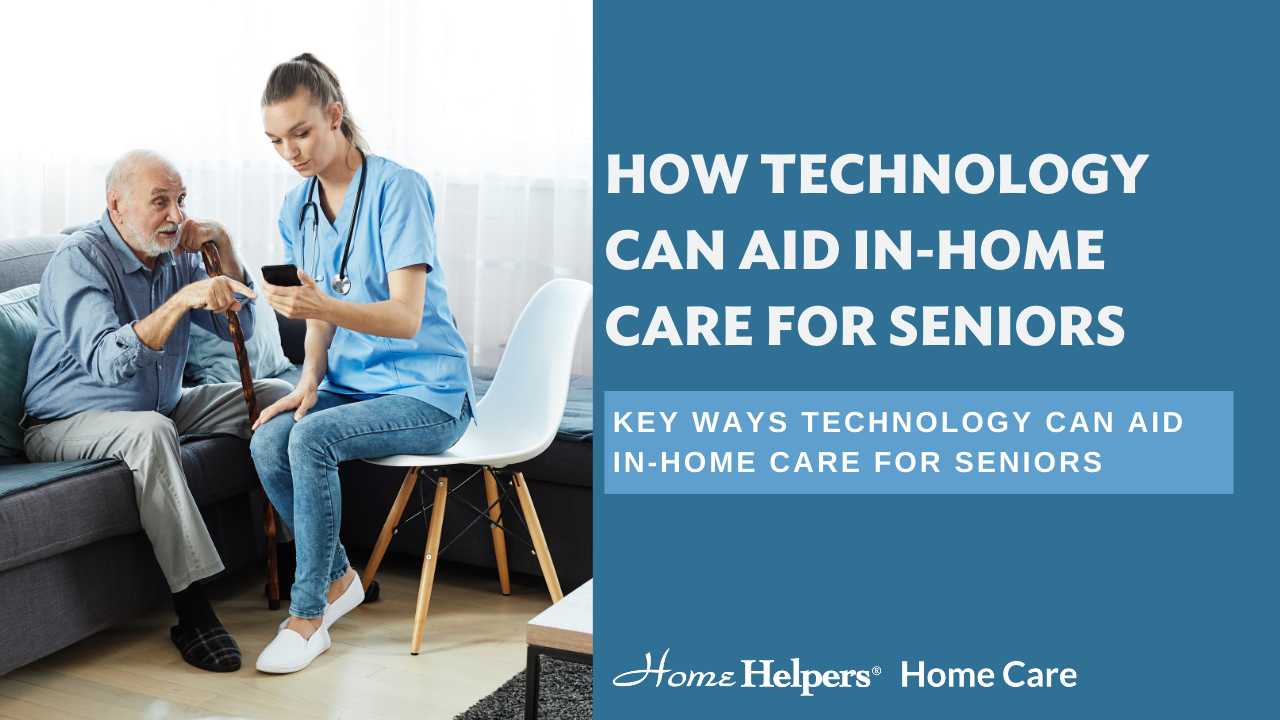How Technology Can Aid In-Home Care for Seniors

Author: Home Helpers Home Care
Advancements in technology are transforming the landscape of in-home care for seniors, providing innovative solutions to enhance safety, independence, and quality of life. From remote monitoring to smart home devices, technology offers numerous benefits for both seniors and their caregivers. Here are some key ways technology can aid in-home care for seniors.
1. Remote Monitoring Systems
Remote monitoring systems allow caregivers to keep an eye on seniors from a distance, providing peace of mind and ensuring safety. These systems can include:
- Wearable Devices: Such as smartwatches or pendants that track vital signs, detect falls, and send alerts to caregivers.
- In-Home Sensors: Placed around the home to monitor movement, detect unusual activity, and alert caregivers if something seems amiss.
- Video Monitoring: Cameras installed in common areas to allow caregivers to check in visually and ensure the senior's well-being.
2. Telehealth Services
Telehealth services enable seniors to consult with healthcare providers remotely, reducing the need for travel and making healthcare more accessible. Benefits include:
- Virtual Doctor Visits: Allowing seniors to speak with their doctors via video calls for regular check-ups, consultations, and follow-up appointments.
- Remote Medication Management: Tools that help seniors manage their medications, receive reminders, and ensure they take the right dosages.
3. Medication Management Systems
Technology can assist with medication management, ensuring seniors take their medications correctly and on time. Solutions include:
- Automated Pill Dispensers: Devices that dispense the correct dosage at the scheduled time, with alerts to remind seniors to take their medications.
- Mobile Apps: Applications that provide medication reminders, track adherence, and send alerts to caregivers if a dose is missed.
4. Smart Home Devices
Smart home devices can enhance the safety and convenience of living at home for seniors. Examples include:
- Smart Lights: Motion-activated lights that improve visibility and reduce the risk of falls.
- Smart Thermostats: Devices that automatically adjust the temperature to maintain comfort and energy efficiency.
- Voice Assistants: Virtual assistants like Amazon Alexa or Google Home that can set reminders, control smart home devices, and provide companionship.
5. Emergency Response Systems
Emergency response systems provide immediate assistance in case of an emergency. These systems include:
- Personal Emergency Response Systems (PERS): Wearable devices with a button that seniors can press to call for help.
- Mobile GPS Trackers: Devices that allow caregivers to locate seniors in case they wander or get lost.
6. Cognitive Training Apps
Cognitive training apps and games can help seniors keep their minds active and engaged. These tools offer:
- Brain Games: Activities designed to improve memory, attention, and problem-solving skills.
- Learning Platforms: Programs that provide educational content and courses to stimulate cognitive function.
7. Social Connection Tools
Maintaining social connections is essential for seniors' mental and emotional well-being. Technology can help seniors stay connected with family and friends through:
- Video Calling Apps: Platforms like Zoom, Skype, and FaceTime that allow for face-to-face communication.
- Social Media: Websites and apps that help seniors stay in touch with loved ones and join online communities.
How Home Helpers Home Care Can Support You
Home Helpers Home Care embraces the use of technology to enhance the care we provide. Our caregivers are trained to utilize these technologies to ensure the safety, health, and well-being of seniors. Services include:
- Technology Integration: Assisting with the setup and use of remote monitoring systems, telehealth services, and smart home devices.
- Medication Management: Using technology to ensure seniors take their medications correctly and on time.
- Emergency Preparedness: Implementing emergency response systems and training seniors on how to use them.
- Cognitive and Social Engagement: Incorporating cognitive training apps and social connection tools into the daily routine.
Our goal is to leverage technology to provide the highest standard of care and support for your loved one.
Conclusion
Technology offers a wealth of opportunities to enhance in-home care for seniors, providing tools to improve safety, health management, and social connections. Home Helpers Home Care is dedicated to integrating these technologies into our caregiving services to ensure your loved one receives comprehensive and compassionate care.
For more information on how Home Helpers Home Care can support your family with the latest technology, visit our website or contact us directly.
#HomeHelpersHomeCare #WeAreHomeHelpers
Sources:
- National Institute on Aging. (2023). Technology to Support Aging in Place. Retrieved from www.nia.nih.gov
- AARP. (2023). Best Tech Products for Seniors Aging in Place. Retrieved from www.aarp.org
- Mayo Clinic. (2023). Technology and Older Adults. Retrieved from www.mayoclinic.org
